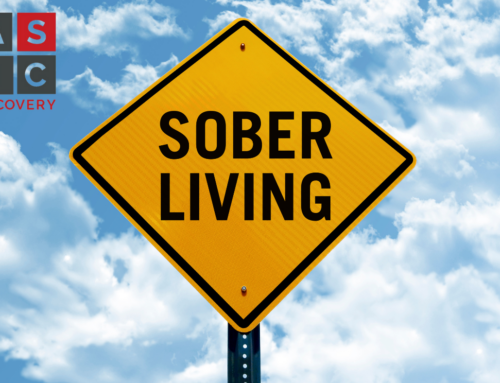Cross addiction or cross dependence is a condition where a person with a history of one type of addiction develops an addiction to another substance or behavior.
This is often done in an attempt to deal with the difficult reality of being sober or to ease the pain of withdrawal symptoms, and it’s unfortunately very common. Cross dependence is different from polysubstance abuse, which is where a person is abusing or addicted to more than one type of drug at the same time (for example, alcohol and opioids).
One very common scenario is when someone quits hard drugs, like cocaine or heroin, and then starts drinking instead. Another common cross addiction is when someone who is addicted to alcohol stops drinking in favor of smoking marijuana.
However, cross addiction doesn’t always happen with dangerous substances–it can happen with anything that’s addictive.
It’s very common for people who quit smoking to start compulsively overeating. Many people who quit drinking will start exercising again, and it’s not uncommon for them to develop an exercise addiction.
The same can happen with gambling or sex or video games–giving up one leads to the next. It doesn’t matter what the substance or behavior is–all that matters is that it replaces some other addiction.
The Science Behind Cross Addiction
Research suggests that all addictions, regardless of the substance or behavior that you’re addicted to, share common neural pathways in the brain. Addictive substances or behaviors trigger the brain’s reward system, leading to feelings of pleasure or euphoria.
In fact, they even release the same chemical in the brain that causes the feeling of euphoria that drugs induce (feeling “high”). This chemical, dopamine, is a neurotransmitter that is normally released only in small amounts and only intermittently.
Dopamine is a normal part of the brain’s reward system, something that’s supposed to be released when we do something pleasurable, like go for a run, win a game, or hug a loved one.
However, when people become addicted to drugs or alcohol and have become used to large amounts of dopamine being released almost constantly, things that would normally bring them pleasure often don’t, a phenomenon known as anhedonia.
They then do what they’ve done in the past–gone over the top to find some sort of pleasure, except now that they’ve gotten away from the drugs that were causing them problems, they turn to something that’s “not as bad.” They then become addicted to this new thing, whether it be alcohol or pills or exercise or sex.
This makes addiction a particularly difficult disease to treat because people with addiction issues often find it very difficult, if not impossible, to not be addicted to something, even if it’s something that society sees as positive, like work or spending time with family.
The Signs of Cross Addiction
Because cross addiction covers such a wide range of possible addictions, the signs are going to look somewhat different depending on whether it’s a process addiction (like sex or gambling) or addiction to a substance.
However, there is a lot of overlap. Here are some of the most common signs of cross addiction:
- Developing money problems as a result of your new activity (spending too much on alcohol or dates with many partners every month)
- Justifying to yourself and others whatever it is you’re overdoing
- Minimizing the problems your new addiction is causing and comparing it to your previous addiction to prove it’s “not as bad”
- Becoming secretive or lying about your new behavior (hiding how often you go to the gym, saying that you’re going to a friend’s house and then going gambling)
- Stealing to support your new habit (stealing pills from your parents, stealing alcohol from the grocery store)
- Withdrawing from normal activities to spend more time on the new addiction (leaving work early to go gamble, giving up your hobby to drink more, ignoring your friends and family to spend more time on dating apps)
- Letting your hygiene or health decline as a result of your new addiction (exercising until you’re injured and then continuing to exercise, not showering for days at a time while drinking)
- Changing your social groups to people who support your new addiction (only hanging out with people who run hundreds of miles a week, spending all day with other people who smoke marijuana)
- Feeling guilty or ashamed of your behavior despite the justifications you come up with
- Developing legal consequences (getting arrested for marijuana possession, getting a DUI)
- Needing more and more of the new addiction to achieve the same effect (going from running 3 days a week to twice a day, spending 2 hours a day in the gym)
If you notice any of these signs in yourself or a loved one, you may have a cross addiction on your hands.
The Dangers and Risks Associated with Cross Addiction
There are three major dangers of cross addiction.
The first is that you’ll eventually go back to your drug of choice. Whatever your new addiction happens to be, it’s releasing the same chemical–dopamine–in your brain as your previous addiction.
Your brain is not sophisticated enough to differentiate between the two, so the feeling that your new addiction causes can make you think about or obsess over the old addiction. Many people find that, after switching to another substance, they eventually revert back to their original drug of choice.
The second danger is that your new addiction will get just as out of hand as your old addiction. If you’re no longer drinking heavily, but you’re eating so much that you’re developing heart disease and diabetes, you haven’t exactly made your life better–you’ve just changed the thing that’s killing you.
The third danger is that, especially if your new addiction is “not as bad” as your previous addiction (for example, if you traded heroin addiction for exercise addiction), you might take a much longer time to get treatment, and you might not seek treatment at all.
No matter what the cause, if you’re experiencing a new addiction, you likely need some help stopping it, especially if you’ve had trouble stopping other addictions in the past.
Cross Addiction Can Be Treated
Addressing cross addiction is not just about treating the new addiction, but also about understanding the cause of the new addiction, getting long-term support, and making a plan to prevent new cross addictions.
If you or a loved one is struggling with addiction in the Dallas-Fort Worth area, we can help.
At ASIC, our Intensive Outpatient Program (IOP), counseling programs, and Partial Hospitalization Program are dedicated to helping you develop healthier coping skills and build a supportive recovery network so that you can achieve long-term sobriety.



